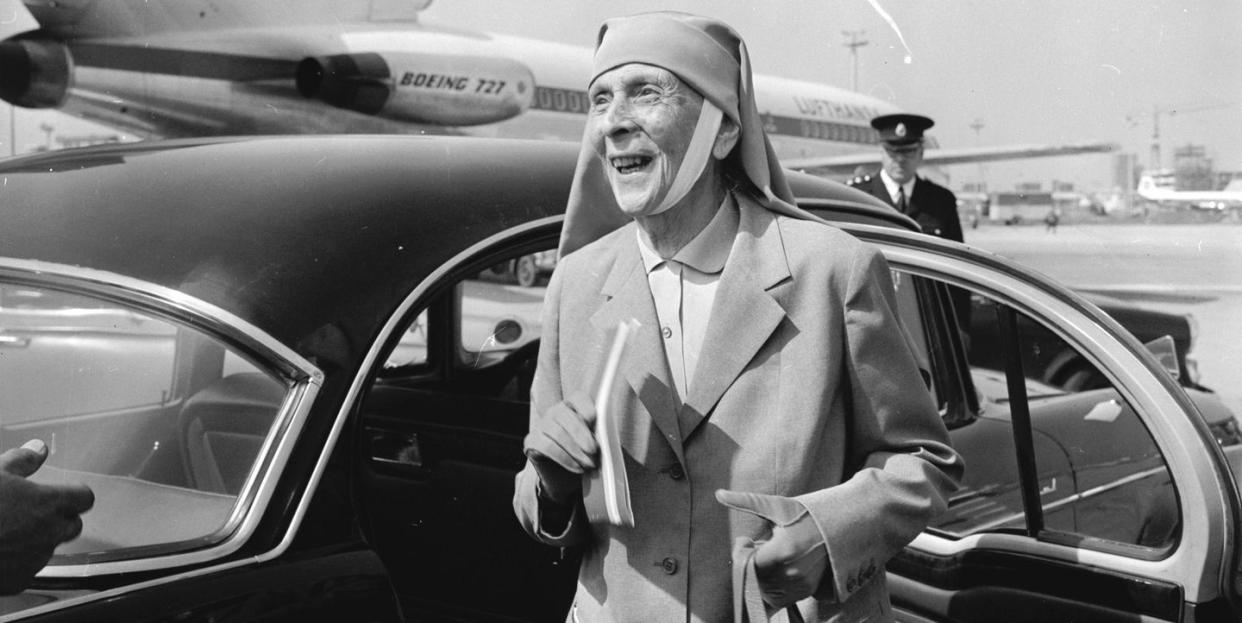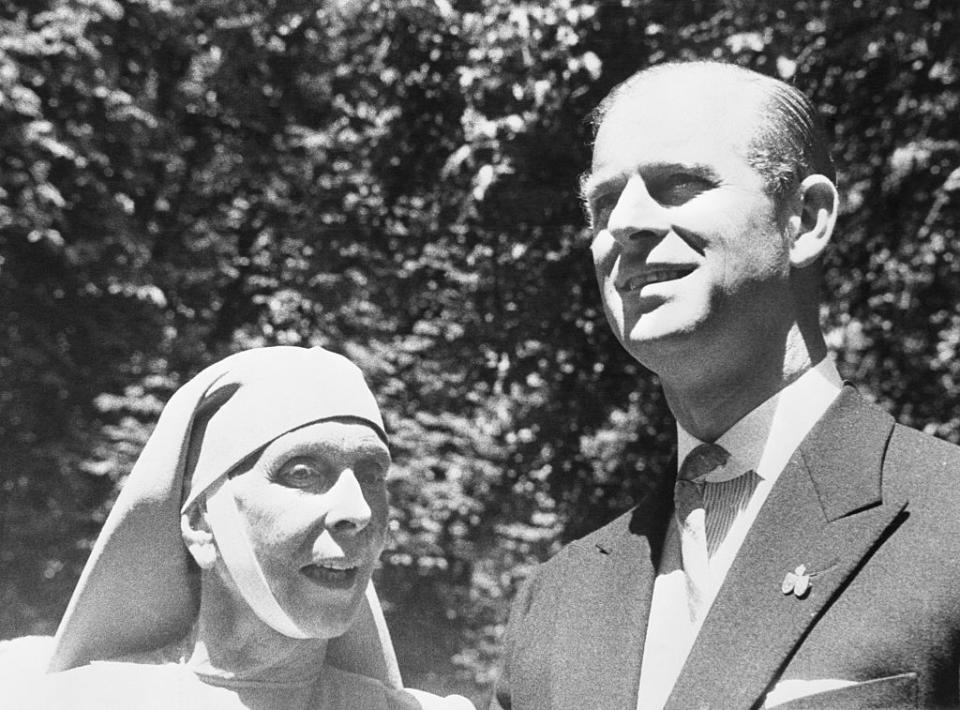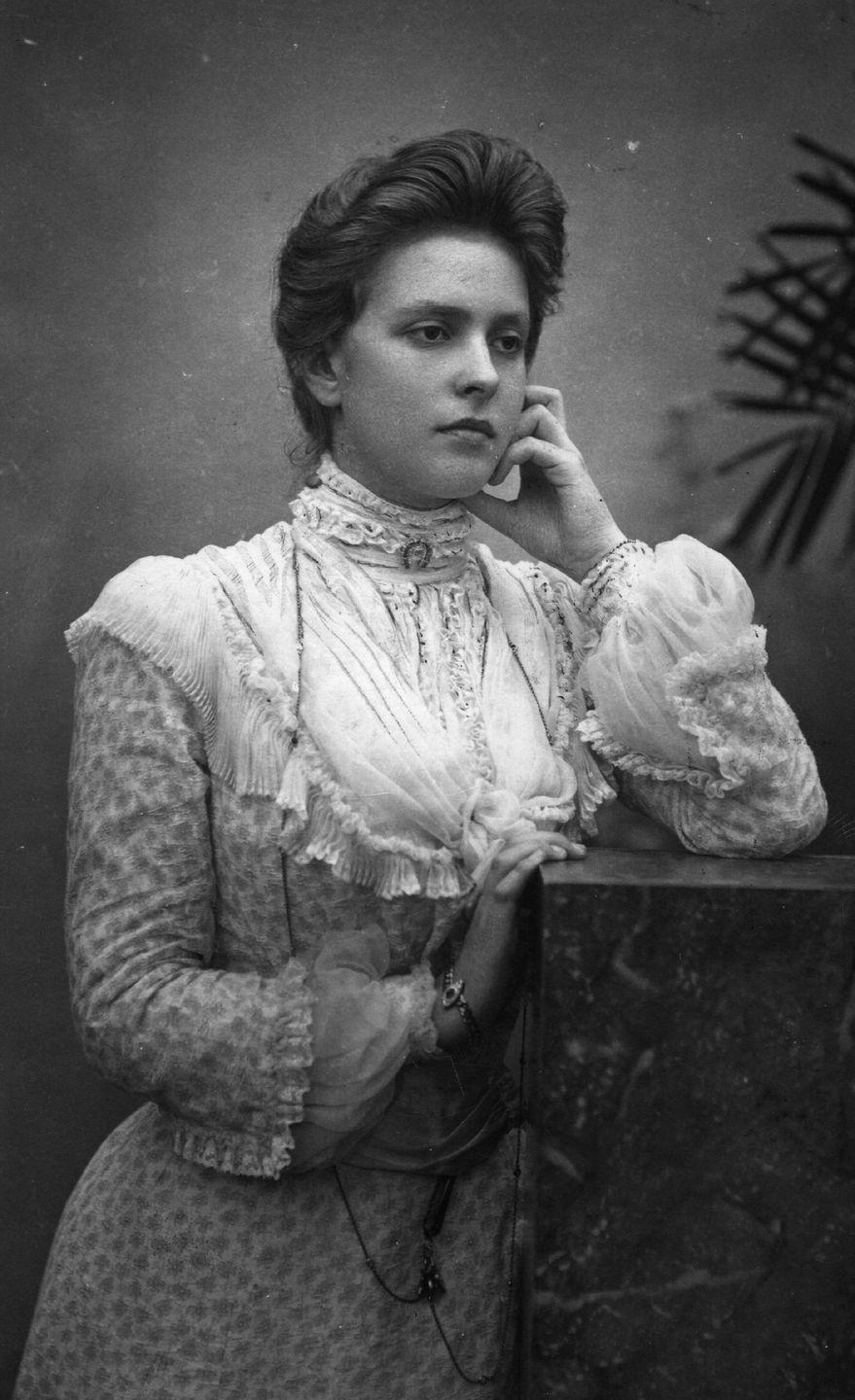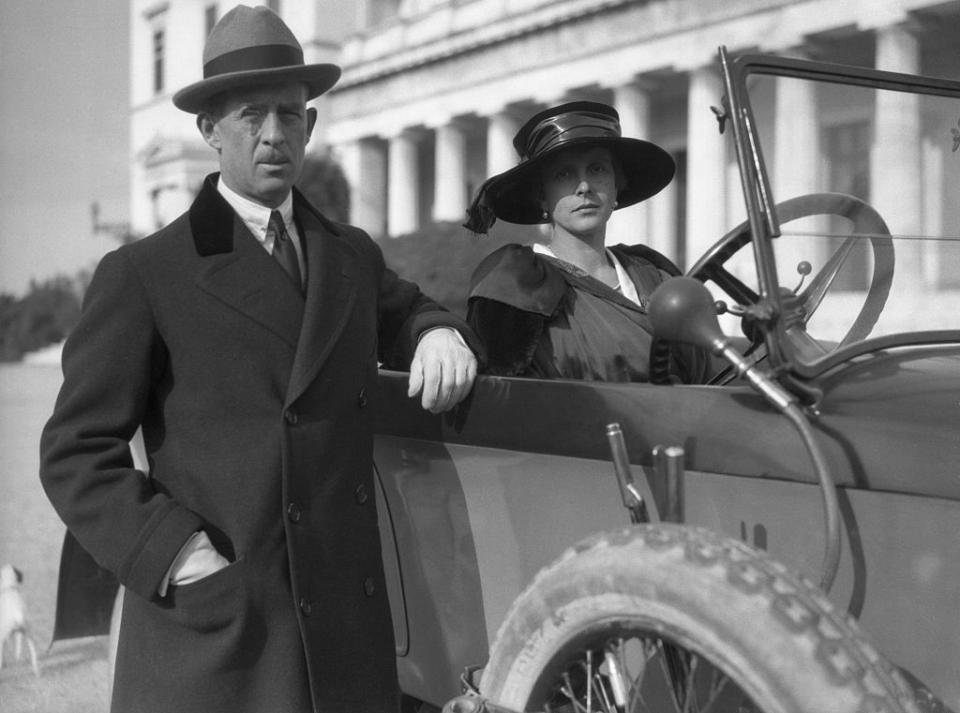The Crown will explore Prince Philip's mother's extraordinarily tragic life

The Crown series 3 will scratch at the surface of Princess Alice's extraordinarily tragic yet munificent life, and her fragile relationship with her only son Prince Philip.
Princess Alice of Greece abandoned her underfunded nunnery in Athens during the clashes of the 1967 Colonels' Coup, and moved in with the Queen and Prince Philip at Buckingham Palace.
This is believed to be where Prince Philip and Princess Alice re-established their mother and son relationship - she referred to him lovingly as 'Bubbikins' - and Alice's tales of her traumatic past had a profound effect on him.
It's due to be touched on sensitively in the anticipated new series of the Netflix drama, which features Tobias Menzies as Prince Philip, and Jane Lapotaire as Alice.
Born in 1885 at Windsor Castle, and growing up in the UK, the German Empire, and Greece, Alice was at odds with her royal status, preferring to live without a title and focus her time and efforts on her religion and charity work.

Alice, who was born deaf, married Prince Andrew of Greece and Denmark in 1903, and when Philip was around ten years old, she was diagnosed with schizophrenia and sent to a hospital where she was treated by Sigmund Freud.
She had become deeply religious and converted to the Greek Orthodox Church, proclaiming to be receiving divine messages and have healing powers. Freud claimed her so-called delusions spurred from sexual frustration, and recommended she undergo x-rays of her ovaries in order to stave off her libido, and induce an early menopause.

Princess Alice pleaded her sanity, and tried to leave the sanatorium countless times, before eventually being released in in the mid-30s.
Meanwhile, Philip was separated from his four older sisters Margarita, Theodora, Cecilie and Sophie, and had been sent to live in England his uncles, Lord Louis Mountbatten and George Mountbatten, and his grandmother the Dowager Marchioness of Milford Haven.
After convalescing, Princess Alice ensconced herself in an itinerant existence, travelling around Europe incognito. Tragedy struck the family again in 1937, when her daughter Cecilie, who was 26, son-in-law Georg Donatus, and two of her grandchildren were killed in an air accident at Ostend.
She attended the funeral and reunited with husband Andrew and son Philip for the first time in six years, before returning to Greece on her own to found a nunnery.
Her family were bemused when she eventually devoted her life to God and became a nun, with her mother proclaiming: "What can you say of a nun who smokes and plays canasta?"
When the German army invaded Athens during the second world war, Alice hid Jewish widow Rachel Cohen and two of her five children. Back in 1913, Rachel's husband, Haimaki Cohen, had helped King George I of Greece, and in return King George had vowed to offer his services if Cohen should ever need them. Cohen's son asked Alice for help, and she took the family in and saved them from persecution.

Alice eventually left her nunnery and moved in with the Queen and Prince Philip at a time when the royal family were facing immense press criticism after Philip had complained about austerity and pay-cuts affecting the palace during an interview on US television.
Alice spoke with Irish republican journalist John Armstrong at the Palace who wrote a sympathetic piece about her life of seclusion and abuse in The Guardian, which softened public opinion on the royal family.
Princess Alice died in Buckingham Palace on 5 December 1969.
In 1994, she was honoured as the Righteous Among the Nations in Jerusalem for having hidden Jewish family the Cohens in her house in Athens during the war.
"I suspect that it never occurred to her that her action was in any way special," Prince Philip said (via The Telegraph). "She was a person with a deep religious faith, and she would have considered it to be a perfectly natural human reaction to fellow beings in distress."
The Crown series 3 launches on Netflix on November 17.
You Might Also Like


